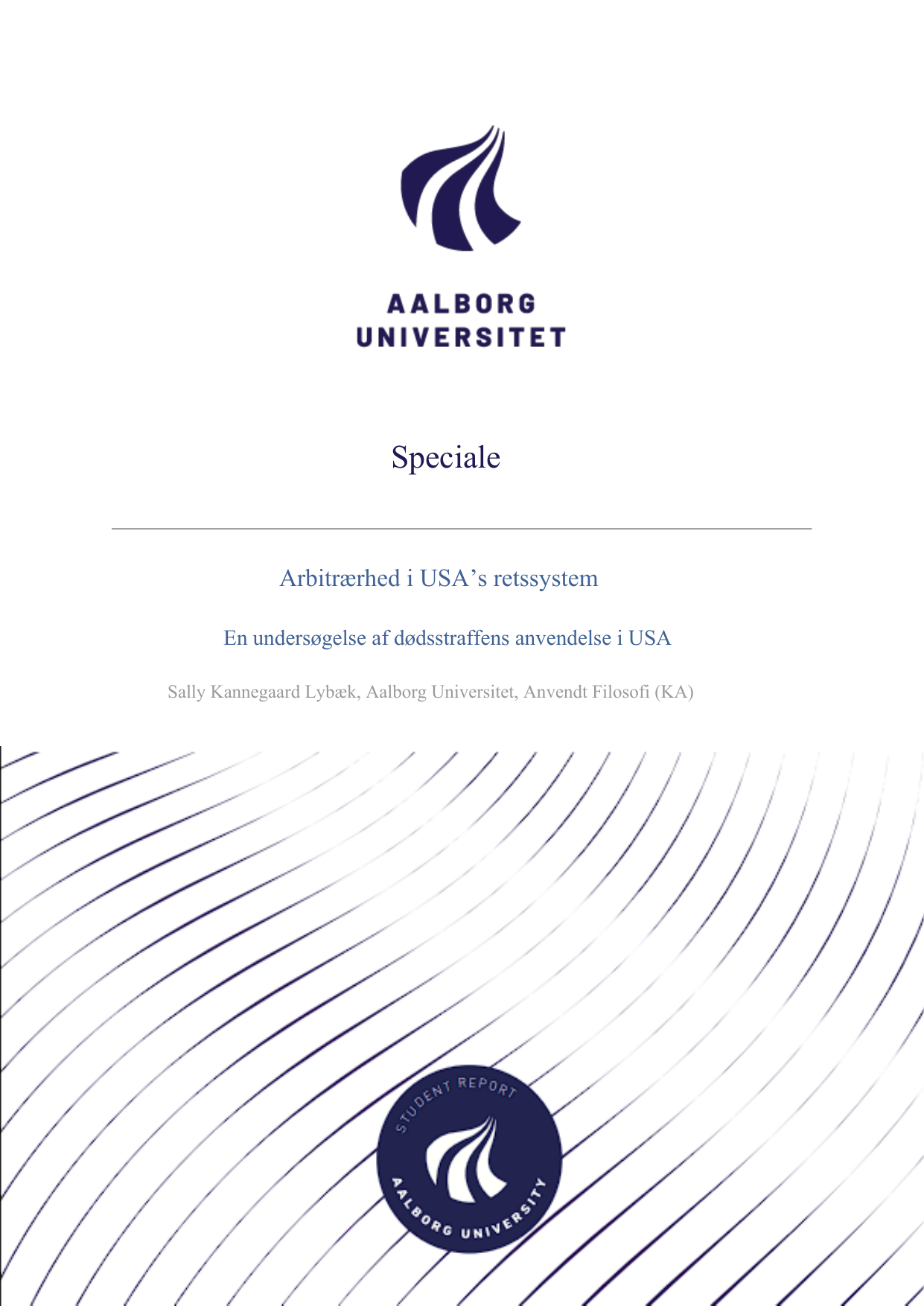
Arbitrærhed i USA's retssystem: En undersøgelse af dødsstraffens anvendelse i USA
Oversat titel
Arbitrariness in the U.S. Legal System: A Study of the Application of the Death Penalty in the United States
Forfatter
Semester
4. semester
Uddannelse
Udgivelsesår
2025
Afleveret
2025-06-02
Antal sider
57
Abstract
Although capital punishment remains legal in 27 of the 50 American states, its continued use can seem difficult to justify based on the well-documented racial arbitrariness found in the penal system. The main objective of this thesis is to investigate whether the death penalty can be morally justified in a system colored by racial and socio-economic bias. Drawing on close readings of key Supreme Court opinions (Furman v. Georgia and Gregg v. Georgia), empirical data from both new and historical studies, to compare how the statistics have changed, and using philosophical writings, the thesis seeks to gather a nuanced layout of the debate on the death penalty. With a focus on Michael Moore's retributive theory, Antony Duff's communicative theory, Van den Haags sociology and Nathansons abolitionist view, these theories will be uncovered and discussed in relation to each other. It is through the combination of the empirical data and philosophical writings, that the thesis maps the terrain of the modern death penalty debate. Through the analysis and discussion, the thesis revealed a persistent race-of-victim and race-of-defendant effect which shows the flaws in the US justice system. The thesis focuses exclusively on hypothetical cases where the defendants are equally guilty, and the crimes are of comparable nature. This ensures that the discussion remains fair and is not distorted by differences in the severity of the crimes or the level of culpability. It was found that the same historical unjust treatment of marginalized groups within the US penal order, continues to fester in the juries today. Philosophically, these facts unsettle a lot of different theories, even ones that, in principle, permit the death penalty, such as Moore’s retributivist view - even if that theory can justify capital punishment under ideal conditions, it becomes much harder to defend when faced with evidence of systemic bias, arbitrariness, and unequal application. The legitimacy of the death penalty is not only a question of moral desert in the abstract, but also of whether real-world institutions can implement it justly. The thesis therefore concludes that abolition in the remaining 27 states could be the solution that is best suited to limit the discrimination. However, eliminating capital punishment will not rid the criminal-justice system of classism or racism, but it will remove the penalty in which those inequities are most lethal and least corrigible, and thus represents a necessary, if only partial, step toward a more defensible penal order
Emneord
